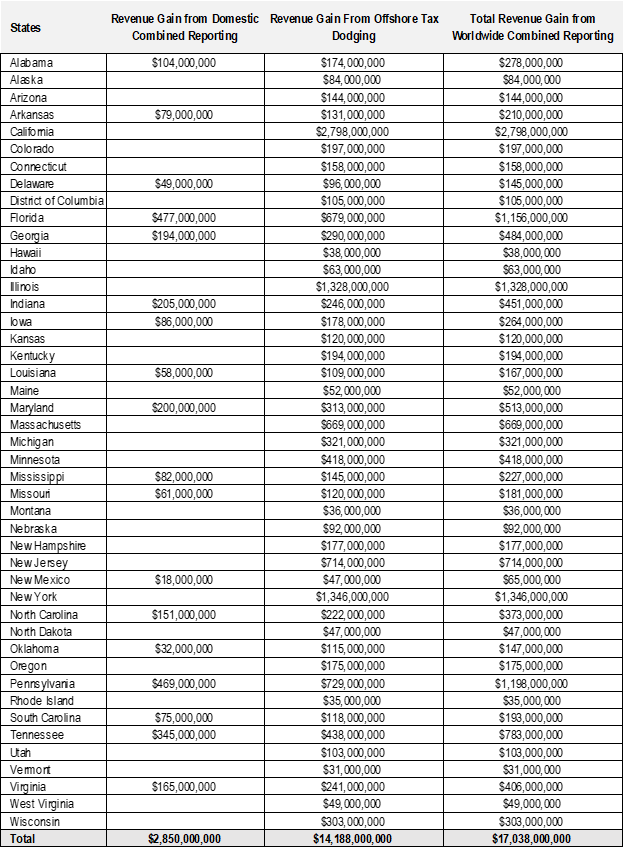Federal reforms have failed to address tax dodging, but states can close loopholes on their own
U.S. PIRG Education Fund
BOSTON — Too many corporations dodge both state and federal taxes by shifting U.S. earnings to subsidiaries in offshore tax havens. However, state-level actions against tax dodging could help states recoup billions of dollars even without further reforms from Congress, according to a new report called A Simple Fix for a $17 Billion Loophole, released today by U.S. PIRG Education Fund, the Institute on Taxation and Economic Policy (ITEP), SalesFactor.org and the American Sustainable Business Council (ASBC).
“When multinational businesses dodge billions in taxes, that money doesn’t come out of a hat. It means states have less money for public priorities such as education or it means that other businesses or individuals end up paying more,” said U.S. PIRG Education Fund’s Nathan Proctor, one of the report’s authors. “Luckily, states can even the playing field and recover billions of dollars for critical services without raising tax rates.”
“Congress promised to address offshore tax dodging in the 2017 tax package, but it failed entirely,” added Richard Phillips, a report co-author and senior policy analyst with ITEP. “If states were waiting on Washington to fix these problems before, they can’t now. And our report shows that they don’t have to.”
States have the power to use a global picture of a company’s activities in order to determine how many tax dollars a state rightfully should receive. A Simple Fix details how much money each state would recover if it required companies to follow one or more standard procedures, including domestic combined reporting, tax haven list reform and worldwide combined reporting — otherwise known as complete reporting.
Combined reporting (used already by 27 states and Washington, D.C.) applies a formula to the total domestic business of a company to determine how much income a company should attribute to the state, instead of letting the company decide unilaterally how to allocate its profits (which incentivizes shifting money to low-tax jurisdictions).
Complete reporting expands the combined reporting to include the company’s entire global business in order to close loopholes that allow corporations to hide profits offshore.
“Our tax system is unfair and inefficient — and federal reform failed to address those concerns,” added Bill Parks Founder of SalesFactor.org. “Complete reporting makes tax return filing easier for small businesses, and ends the grossly unfair advantage larger multinationals currently have on their small business competitors.“
“Right now, responsible businesses pay their fair share of taxes, while others are allowed to dodge and avoid their fair share. That hurts everyone,” said John O’Neill of the American Sustainable Business Council, which has a member network representing 250,000 businesses. “Too many companies have abandoned their moral obligation to pay the full amount they owe for the public services and infrastructure they use in our states. That means other taxpayers, including other businesses, have to pay more.”
Closing loopholes that allow offshore tax dodging would lead to significant revenue gains for states, as illustrated in the table below. By modernizing state tax codes with these simple reforms, states could bring in a total of $17 billion each year, level the playing field for local businesses that compete with multinational corporations, and protect honest taxpayers from picking up the tab for tax dodgers.
